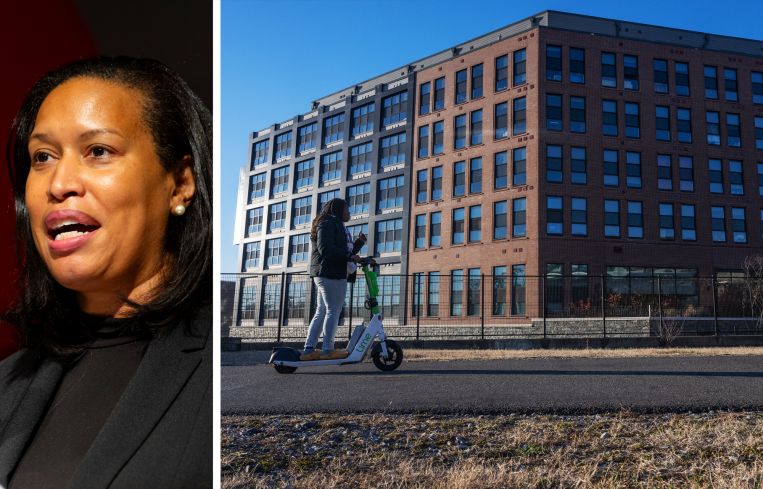D.C. Mayor Bowser Proposes Lifting Pandemic-Era Renter Protections
A new bill is aimed at streamlining eviction processing times and allowing some landlords to skip offering tenants first buy rights
By Nick Trombola February 13, 2025 1:20 pm
reprints
Washington, D.C., Mayor Muriel Bowser is seeking to reverse pandemic-era renter protections in the District as affordable housing suppliers say they’ve lost out on millions of dollars in unpaid rent over the past five years.
Bowser has proposed the Rebalancing Expectations for Neighbors, Tenants and Landlords (RENTAL) Act, a multifaceted bill aimed at preserving affordable housing by speeding up eviction processing to pre-pandemic rates, strengthening tenant safety rules, and raising the bar for local rent supplement programs. The Washington Post first reported the news.
D.C. contained about 35,000 subsidized units as of 2023, according to USAFacts, citing U.S. Housing and Urban Development and Census data.
The bill also seeks to accelerate the development of more affordable housing in the District by making it easier for the D.C. Department of Housing and Community Development (DCHD) to acquire and redevelop vacant properties. It would ensure DCHD can allocate more Low-Income Housing Tax Credits for affordable projects, and exempt some buildings from Tenants Opportunity to Purchase Act (TOPA) — which requires tenants be given first opportunity to buy their building if the landlord wants to sell. The move is an attempt to “clarify which transactions are eligible and that tenants are aware of their TOPA rights,” per the bill’s announcement.
“Our collective citywide commitment to affordable housing has made D.C. a national model for success. But that hard-won progress is at risk,” Bowser said in a statement. “We now must act with similar urgency to protect the affordable housing that is home to nearly 100,000 Washingtonians and ensure our ability to build more housing. We do that by rebalancing our housing ecosystem and leveraging the right tools, the right investments, and the right policies to meet this moment.”
The amount of unpaid rent in affordable housing communities has skyrocketed since the pandemic, with a typical affordable housing provider unable to collect 20 percent of rent due in a given month, according to November testimony by the D.C. Policy Center, a nonpartisan think tank. Yearly unpaid expenses have risen significantly since 2019, from $1.8 million that year to $14 million in 2024, according to the Policy Center, with policies like the District’s COVID-era Emergency Rental Assistance Program exacerbating the problem by making it more difficult to evict tenants.
D.C.’s eviction moratorium has been lifted, but a sizable backlog of eviction cases remains. Evictions often take more than a year to resolve in court, compared with three to six months before the pandemic, per the D.C. Policy Center.
Bowser’s proposed RENTAL Act needs approval from the D.C. Council. A spokesperson for D.C. Councilmember Charles Allen and Councilmember At-Large Anita Bonds did not immediately respond to requests for comment. Representatives for tenant’s advocates like the D.C. Tenants’ Rights Center and Legal Aid DC also did not immediately respond to requests for comment.
Aside from increased landlord protections and TOPA changes, the Bowser administration has chosen 69 housing projects for up to $144 million in bridge, gap and support funding via the District’s Housing Production Trust Fund. The investment, the largest in the trust fund’s history, according to Bowser, will aim to preserve nearly 8,000 housing units, over 7,700 of which are affordable.
“These initial selections focus on the properties where our affordable housing investments are potentially at risk,” Colleen Green, director of DCHD, said in a statement. “It’s important that existing affordable housing units are preserved because protecting every affordable unit is vital to the District’s housing ecosystem.”
Nick Trombola can be reached at ntrombola@commercialobserver.com.


